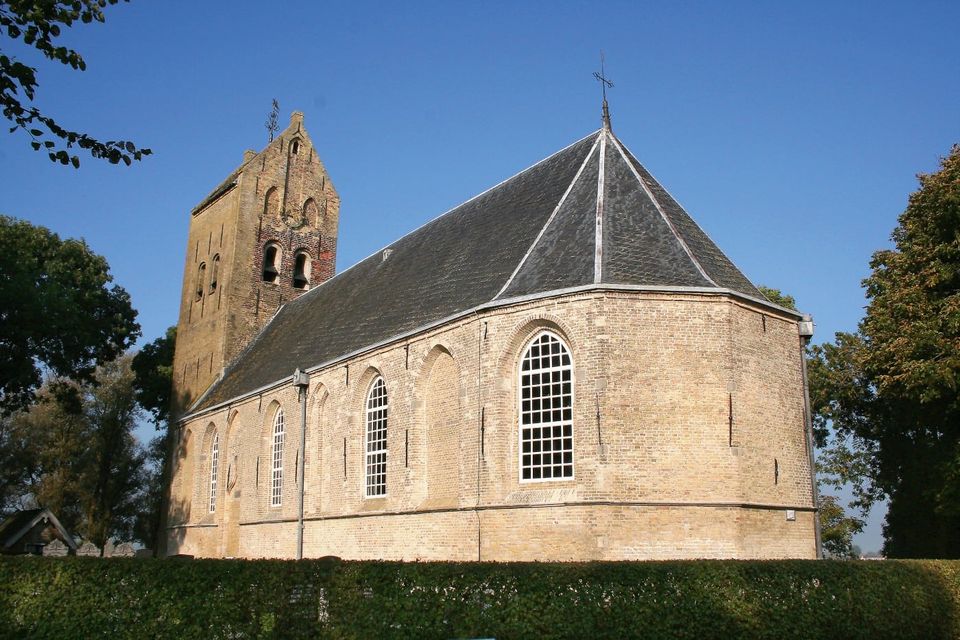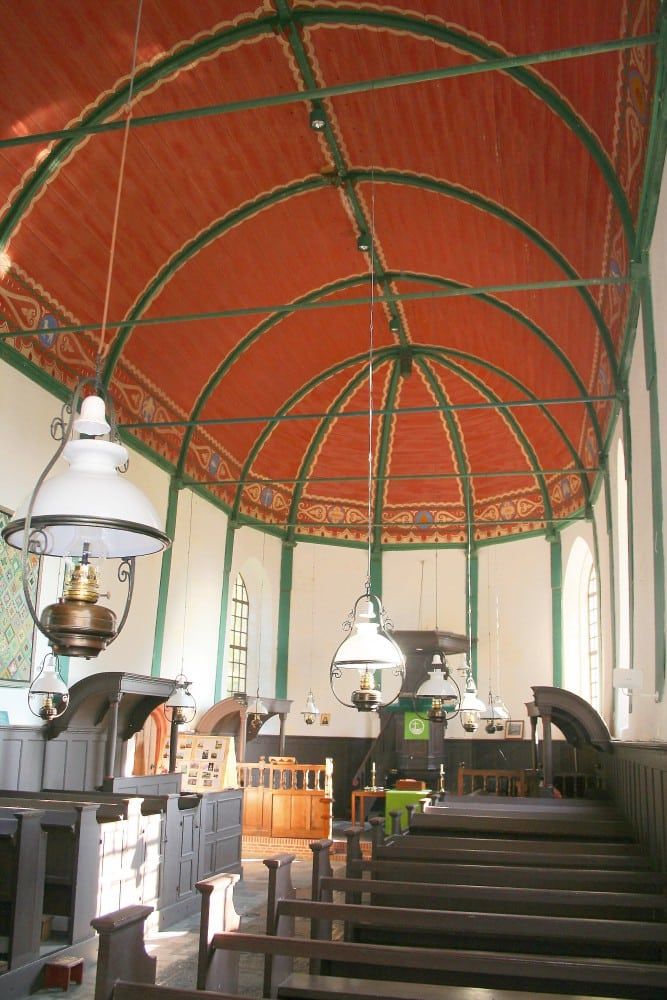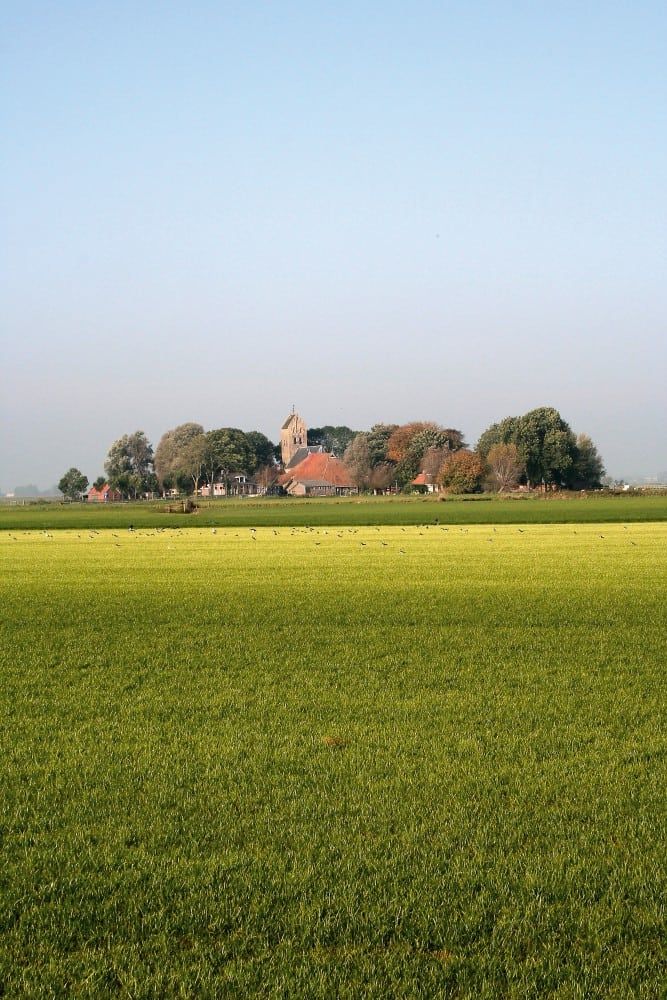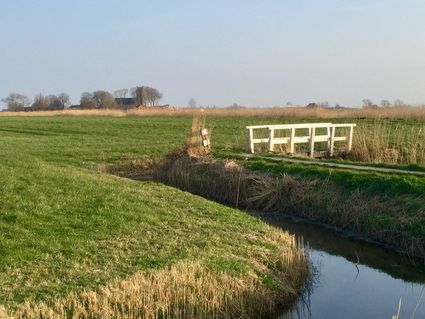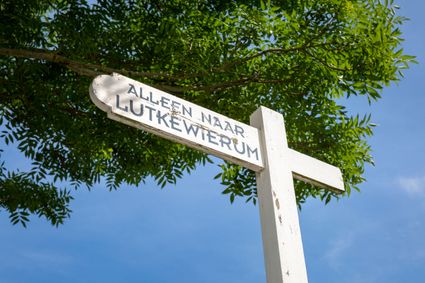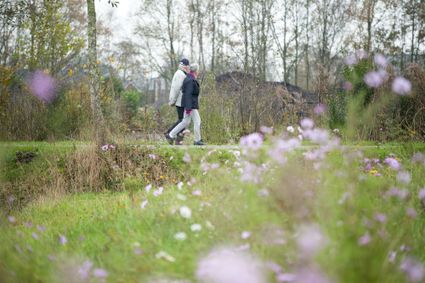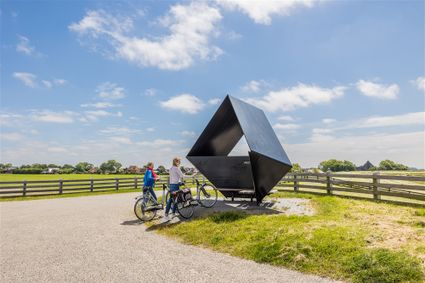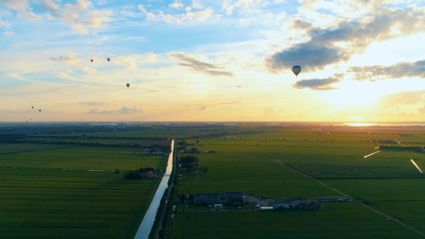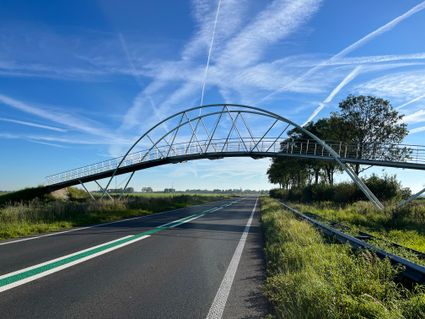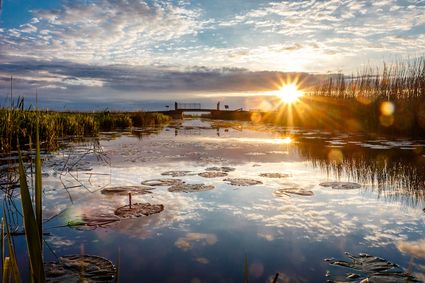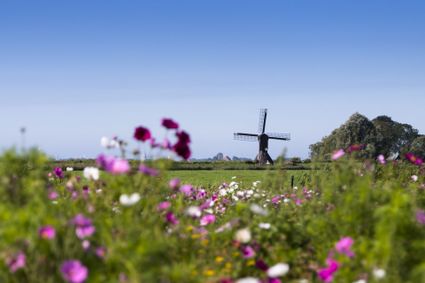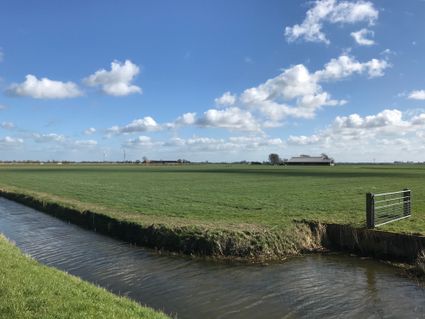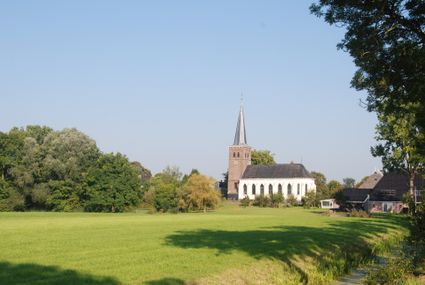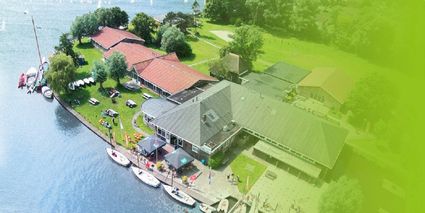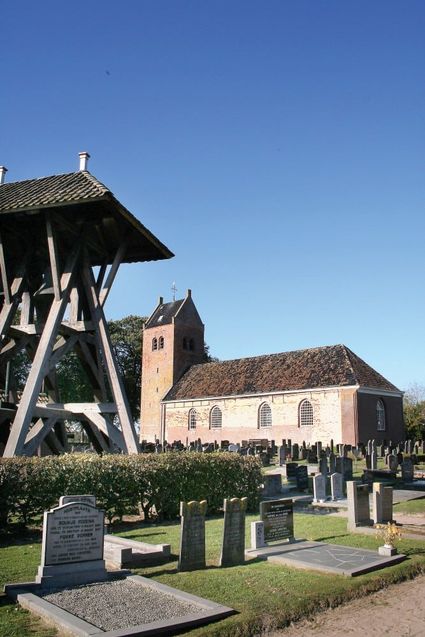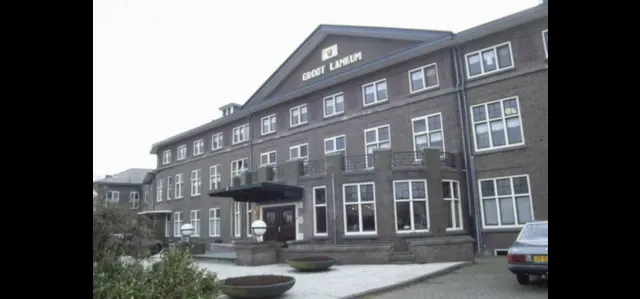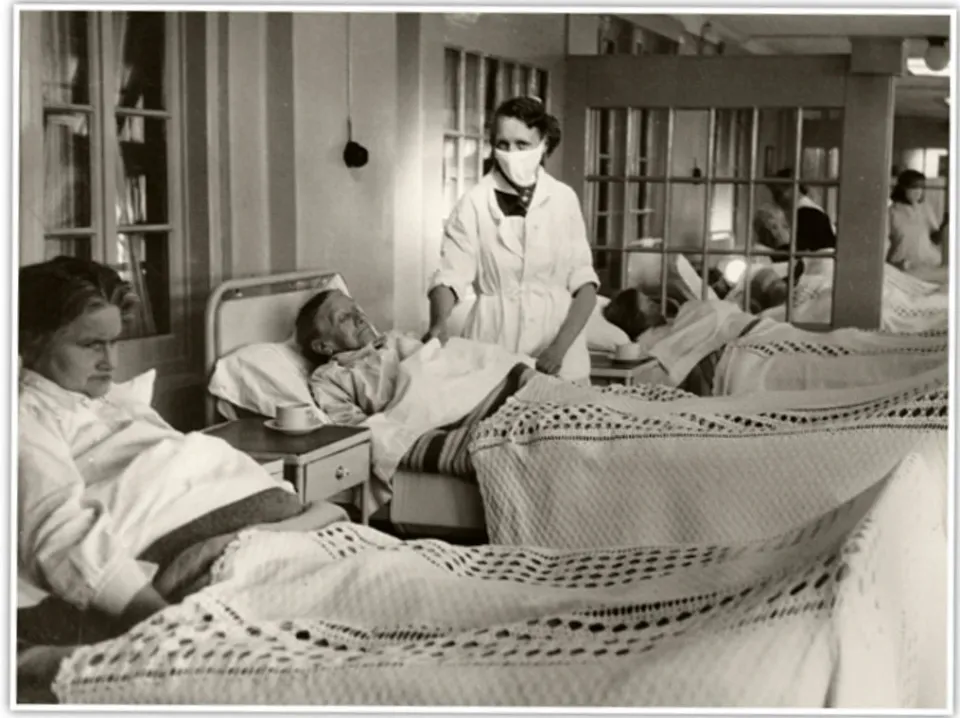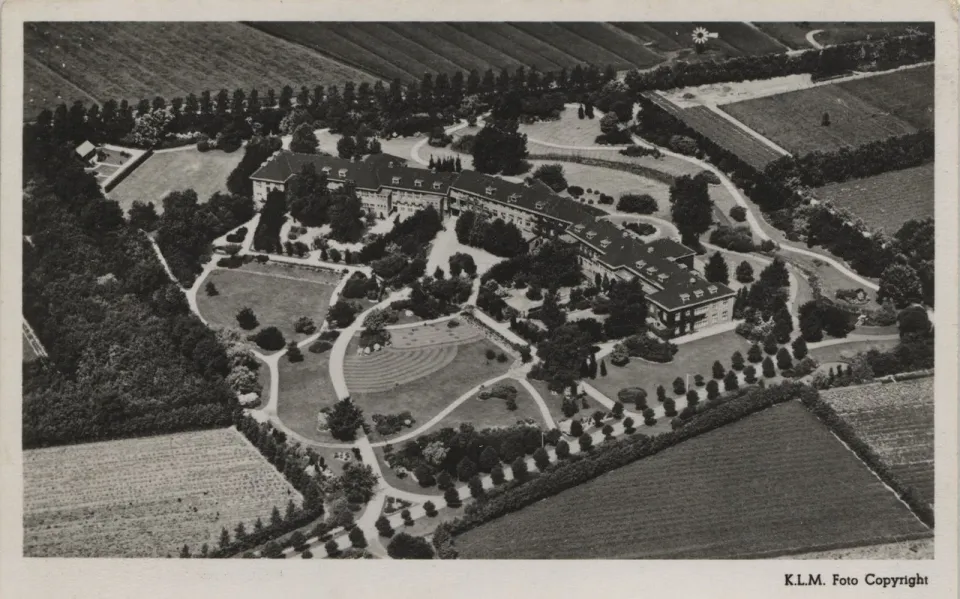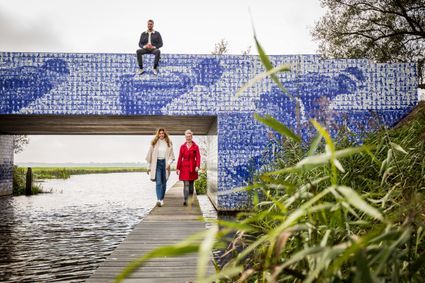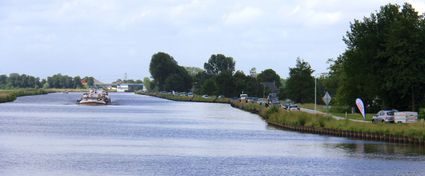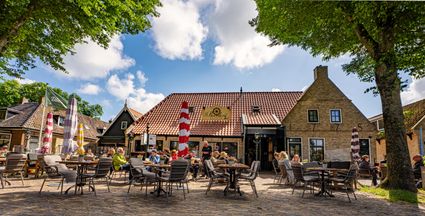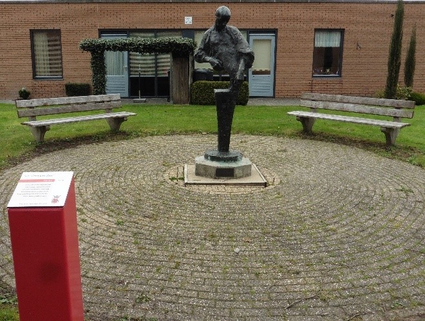Sint-Gertrudiskerk Lytsewierrum
Lytsewierrum
In the middle of the picturesque Lytsewierrum stands this church since 1557. To be precise, on March 31, as can be read on a stone in a beautiful ogee-shaped but bricked-up southern entrance. Over forty years before, its predecessor had gone up in f...
Take a look
In the middle of the picturesque Lytsewierrum stands this church since 1557. To be precise, on March 31, as can be read on a stone in a beautiful ogee-shaped but bricked-up southern entrance. Over forty years before, its predecessor had gone up in flames, only the fifteenth-century tower survived the fire. The church is constructed at the bottom with headers and above with small bricks.
Inside, the barrel vault with Art Deco paintings from 1928 catches the eye. The ornamentation features beautiful fish-bladder-like ornaments with Christian symbols and wavy edges along the ribs. In front of the choir screen, two canopied gentlemen's benches stand, which, together with the pulpit, form a modest 18th-century ensemble. Also noteworthy are the collection of oil lamps and the Van Dam organ from 1870.
Additional information:
The Gertrudiskerk has stood as a highlight in the center of the picturesque terp village Lytsewierrum since 1557. In 1514, its predecessor built of tuff stone was destroyed by fire. In the southern wall, the foundation stone indicates that the church was built on March 31, 1557, when bread cost twelve stuivers (compare with Visvliet in Groningen). The extremely expensive bread must have been the result of an epidemic or another crisis. The base of the church is made of yellow headers. Then follows a circular cornice above which the masonry is made of small stones. The church on the south side was articulated by large pointed-arch windows with negs in the jambs. Some windows have been bricked up later. The central niche with a fork tracery is likely original. A little further west in such a niche, a beautiful ogee-shaped but bricked-up entrance is visible, in which the foundation stone is placed. On the western side of the north wall is a relatively new entrance under a segmental arch. A little eastward, between the two windows, is a tall niche extending to the ground, likely containing an entrance, and much further east, a round arch trace is visible, also indicating a former entrance. In the five-sided choir closure, two windows stand. The unarticulated saddle-roof tower probably dates back to the 15th century and was partially clad with small stones in 1722. It has round-arched sound holes and in the gables are pointed-arch, climbing niches. The weather vane has the shape of a rider.
The church space is covered by a wooden barrel vault that received paintings in Art Deco forms in 1928. On the warm red background, wavy edges are painted along the ribs and a broad band along the base. Christian symbols stand between fish-bladder-like ornaments on clear blue medallions. Inside the baptismal fence with balusters stands the pulpit with sounding board against the eastern closing wall. In front of the choir screen, two canopied gentlemen's benches stand facing each other. It forms a modest 18th-century ensemble. L. van Dam & Zn. built the organ in 1870. The church still possesses its beautiful collection of oil lamps.
Late Gothic
1557, Tower 15th century
Protestant
Pulpit, gentlemen's benches, vault paintings, organ
Here you will find Sint-Gertrudiskerk Lytsewierrum
Buorren 38642 WG Lytsewierrum Plan your route
from your location
